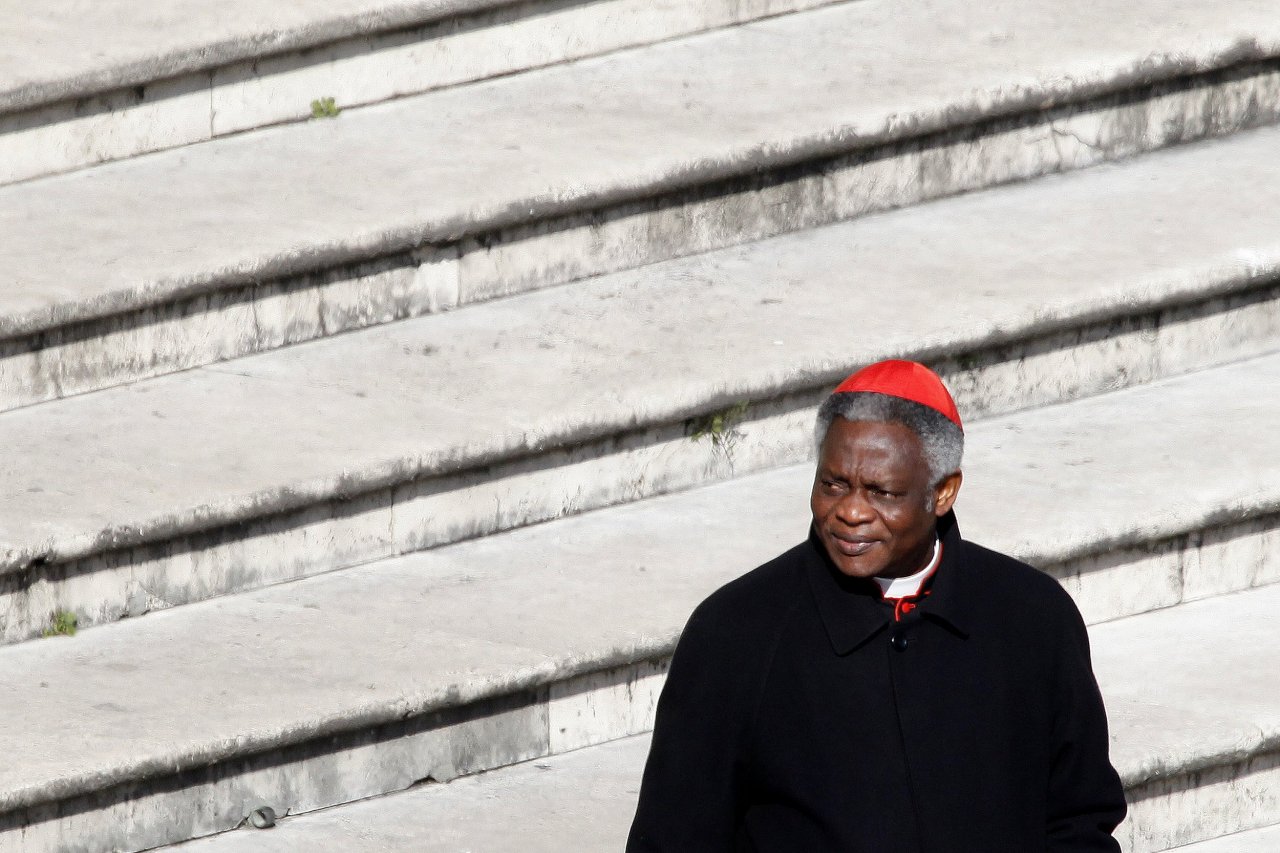
Pope Francis's Laudato Si' encyclical, released last June, took humanity to task for its "cheerful recklessness" in pursuit of profits and its exploitation of the Earth. We're bludgeoning the most vulnerable parts of society and destroying our only home while we do it, it said, calling for no less than a social and economic paradigm shift.
Behind this sweeping environment encyclical was Cardinal Peter Turkson, once thought to be a contender for the papacy. Turkson, from Ghana, is now a key adviser to the pope, and he led the creation of the encyclical's first draft and coordinated the team that helped the pope craft the final draft. Newsweek spoke to Turkson just as Francis landed in New York City on September 24.
Some members of Congress have used the Bible to say climate change does not exist. For example, Senator Jim Inhofe once quoted a verse from Genesis: "As long as the earth remains, there will be springtime and harvest, cold and heat, winter and summer" [Genesis 8:22]. And because of this, it would not be possible that we could be changing the climate. How would you respond to that argument?
I do not want to take any issues with the congressman or engage in any exegetical debate with him about how to read or interpret any part of the Bible or Scriptures. But anybody who is used to the Bible will also recognize that a statement like that must always be contextualized a little bit, placed in its setting—where and when and under what conditions it was said.
The Bible talks about the Earth languishing under the sins of human beings. It means that the conduct of human inhabitants of Earth can have an impact on the health of the Earth. This can also be found in Scriptures. If we go to the beginning, when God introduced the first human couple into the garden he had prepared, he asked them to till and to take care of it. That's the basic current of our relationship to the world in which we live. It's our home. It was given to us as a garden. And it is the task and responsibility of all of us to keep it as a garden and not to pass it on to later generations as a wilderness. That would not be fair, that would not be just.
Much of the encyclical talks about economic ethics, and a system of economics that encourages unethical behavior, leading to inequality and environmental destruction. Is capitalism a good idea?
This is not the first time an encyclical talks about an economic system that doesn't promote the well-being of everybody in an equal and sustainable manner. But it doesn't quite identify or call it by the name of capitalism. I suppose that's kind of intentional. The basic affirmation is that economics…should try to promote the flourishing of all in an equal manner, if possible…. The pope isn't the only one to observe this. At the meeting of Davos last January, it was also observed by Oxfam that this was still going to get worse, with the few getting richer and richer and the bulk of the human population getting poorer and poorer. This is the type of thing the Holy Father is observing, and inviting us to switch gears. Change of paradigm, so that the world's resources can really be enjoyed by all of humanity in a way.
How much was Pope Francis involved in the drafting of this encyclical, and was there anything added or taken out you would like to see in a future document?
What any of us did, by way of preparing this, doesn't matter. What we have is the encyclical of the Holy Father. And whatever material he used, and whatever he threw out, it doesn't matter anymore to any of us.
Later this year, the United Nations will host COP21, a key climate change summit, in Paris. What of this encyclical can or should apply to these U.N. talks?
There are certain concepts in the Laudato Si' which can accompany them as they go to Paris. For example, the sense of care. It's interesting that I use the word care. I'm not talking about stewardship or custody or anything, which used to be the way we talked about our relationship with the world in the past. The Holy Father in this particular encyclical uses the word stewardship or custody only twice. Everything is about care. So it's something more with passion, with interest, with engagement, with commitment.
The second thing is that whatever decisions that are taken can be guided by ethical considerations and by the wisdom of religious traditions. These can also help promote and motivate and inspire people to do something for an improved global environment in which to live our lives. Serious ethical considerations are required. For example, if something is possible to realize, and we have the means to realize it, we should also have the heart to do it.
It's been abundantly said that the world has all the means and the resources to feed all who are hungry. So why is it not done? The world has the means to stop all the wars. Why is it not done? The world has the means to stop all arms trafficking. Why is it not done? So we know about what can be done to make the world a better place. But the willpower is not there. There is an ethical deficit.
That's what Laudato Si' brings into that discussion. It's not simply technological consideration. It's technological consideration guided by serious ethical consideration.
This interview was condensed and edited for clarity.
About the writer
Zoë is a senior writer at Newsweek. She covers science, the environment, and human health. She has written for a ... Read more














